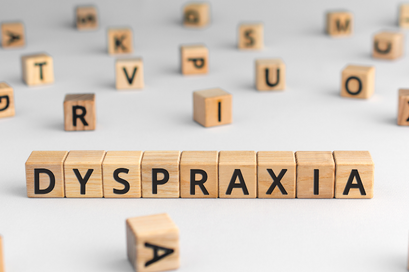Get Moving with Dyspraxia!
Did you know that it is Dyspraxia Awareness Week?
Dyspraxia affects up to 6% of the population and affects males four times more than females. The focus this year is on the experience of physical activity and how this affects physical and mental health. Sarah Meharg shares a case study on her top tips for being an active adult with Dyspraxia, click here to read.
Let's talk about what Dyspraxia is and how can we tell the signs:
- What is Dyspraxia?
Dyspraxia is a common Developmental Coordination Disorder (DCD) which affects fine and/or gross motor coordination in children and adults. It is easily hidden, often unheard of and as a consequence often poorly understood. Unlike its more well-known sister Dyslexia. - What are the signs?
Clumsiness, poor balance, fatigue, perception issues, disorganisation, poor hand-eye coordination, poor handwriting, speech difficulties, poor motor skills, low self-esteem amongst others...
For example, associated difficulties with speech and language may render a dyspraxic person to stall in conversation. Chatting may not be free flowing; instead, long and awkward pauses stilt the conversational flow. Coordination can be tricky too. Movements can be jerky and poor spatial awareness can result in more accidents and injuries. Bumping into things and displaying an array of bruises is typical. Personal organisational skills can also be lacking. If you are dyspraxic you may be more likely to misplace your keys or wallet, and arrive at work or college without essential equipment. - How would I recognise an adult with dyspraxia / DCD?
The presence of many (although not all) of these signs might suggest that an adult has dyspraxia/DCD:
- History of physical awkwardness as a child, but may have developed coping or avoidance strategies as an adult
- Difficulty learning new motor skills or applying skills in a different or busy environment
- Difficulty handling tools and equipment such as a tin opener
- Poor balance, tires easily
- Can produce lots of writing or neat writing, but not both at the same time
- Anxious and may avoid social situations where difficulties might be exposed
- Poor organisation and time management skills
- Misses deadlines, late for appointments
- Awkward pauses before answering questions
- Underachieves academically and in the workplace
For more information on Dyspraxia, click here.
Sources:
https://www.learningdisabilities.org.uk/learning-disabilities/a-to-z/d/dyspraxia
https://dyspraxiafoundation.org.uk/what_is_dyspraxia/dyspraxia-at-a-glance/
https://dyspraxiafoundation.org.uk/awareness-week/dyspraxia-week-2022-get-moving-with-dyspraxia/
http://www.dyspraxiafoundation.org.uk/


